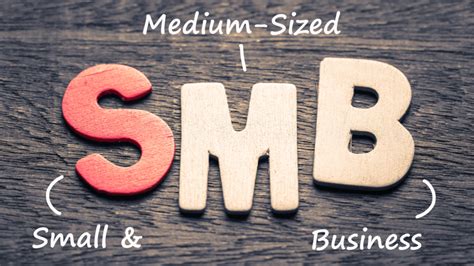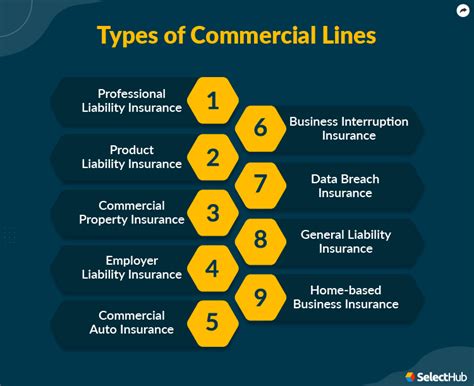Insurances For Small Businesses

For small business owners, understanding the world of insurance can be daunting. However, it is an essential aspect of running a successful and sustainable business. Insurance provides a safety net, protecting businesses from potential financial losses and unforeseen events. This comprehensive guide aims to delve into the intricacies of insurance for small businesses, offering insights and advice to help navigate this complex landscape.
Understanding the Importance of Insurance for Small Businesses

Insurance plays a crucial role in mitigating risks and ensuring the longevity of small enterprises. It provides a layer of protection against a wide range of potential hazards, from property damage to liability claims. For small businesses, which often operate with limited resources and a narrower margin for error, insurance is not just a good idea but a necessary component of their operational strategy.
The primary purpose of insurance is to transfer the risk of financial loss from the business owner to the insurance company. This transfer of risk is particularly beneficial for small businesses, as it allows them to focus on their core operations without the constant worry of unforeseen expenses. It also ensures that the business can continue operating even in the face of unexpected challenges, providing a level of stability and peace of mind.
Types of Insurance Essential for Small Businesses

General Liability Insurance
General liability insurance is a fundamental type of coverage for any small business. It protects against bodily injury, property damage, and personal and advertising injury claims that may arise from the business’s operations. This insurance is particularly important for businesses that interact directly with the public, as it covers a wide range of potential risks, including slip and fall accidents, product liability claims, and even copyright infringement.
For instance, imagine a small bakery that sells its products at local markets. If a customer trips over a box left in the aisle and sustains an injury, general liability insurance would cover the potential costs of the medical bills and any legal fees associated with the claim. This protection is invaluable for small businesses, as it helps to mitigate the financial impact of such incidents, which could otherwise be devastating.
Property Insurance
Property insurance is another critical aspect of small business insurance. It provides coverage for the physical assets of the business, including buildings, equipment, inventory, and any other physical items that are essential to the operation of the business. This type of insurance can protect against a variety of perils, such as fire, theft, vandalism, and natural disasters.
Consider a small retail store located in a flood-prone area. Property insurance would provide coverage in the event of a flood, helping the business owner to replace damaged inventory, repair or rebuild the store, and get back on their feet as quickly as possible. Without this insurance, the financial burden of such an event could be overwhelming and potentially lead to the business's closure.
Professional Liability Insurance (Errors and Omissions)
Professional liability insurance, also known as errors and omissions (E&O) insurance, is essential for businesses that provide professional services or advice. It protects against claims made by clients for negligence, errors, or omissions in the services provided by the business. This type of insurance is crucial for businesses such as consulting firms, marketing agencies, IT services providers, and any other business where the work product or advice could potentially lead to financial loss for a client.
For example, a web design agency might provide services to a client, but due to an oversight, the client's website goes live with critical errors that lead to financial losses for the client. Professional liability insurance would step in to cover the costs associated with this claim, including any legal fees and the financial compensation paid to the client.
Workers’ Compensation Insurance
Workers’ compensation insurance is a legal requirement in many jurisdictions and is essential for any business that employs staff. This insurance provides coverage for employees who are injured or become ill due to their work. It covers medical expenses, a portion of lost wages, and rehabilitation costs. By having workers’ compensation insurance, businesses can ensure that their employees receive the necessary care and support while also protecting themselves from potential liability claims.
In a small manufacturing plant, for instance, if an employee suffers an injury on the job, workers' compensation insurance would kick in to cover the cost of medical treatment and a portion of the employee's salary while they are unable to work. This insurance not only helps the employee get the care they need but also protects the business from potential lawsuits and ensures a more harmonious relationship between the business and its workforce.
Tailoring Insurance to Your Small Business
While these are some of the most common types of insurance for small businesses, it’s important to remember that every business is unique and may require additional or specialized coverage. The best way to ensure you have the right insurance for your business is to work with an experienced insurance broker who understands your industry and can tailor a package to your specific needs.
For example, a small tech startup might require cyber liability insurance to protect against the growing threat of cyber attacks and data breaches. On the other hand, a small construction company might need pollution liability insurance to cover potential environmental risks associated with their work.
By conducting a thorough risk assessment and working with an expert, you can identify potential hazards and ensure you have the right coverage in place. This proactive approach can save your business from significant financial losses and help you maintain a strong and stable operation.
The Impact of Insurance on Small Business Growth and Stability
Insurance is not just about protecting your business from potential risks; it also plays a significant role in fostering growth and stability. By providing a safety net, insurance allows small business owners to focus on strategic planning and business expansion, knowing that they are protected against unexpected financial burdens.
Moreover, insurance can enhance a business's credibility and attractiveness to potential investors, partners, and clients. It demonstrates a commitment to professional conduct and a responsible approach to risk management. This can be particularly beneficial when seeking funding, as investors often look for businesses that have taken the necessary steps to protect their assets and ensure long-term viability.
The Future of Insurance for Small Businesses

The insurance landscape is constantly evolving, and small businesses need to stay informed about emerging trends and technologies that can impact their coverage and costs. From the rise of cyber risks to the increasing focus on environmental, social, and governance (ESG) factors, small businesses must adapt their insurance strategies to stay ahead of the curve.
For instance, with the increasing reliance on technology, many small businesses are now exposed to cyber risks that were previously not a concern. This shift has led to the development of specialized cyber insurance policies that can protect businesses from the financial fallout of cyber attacks, data breaches, and other digital threats. By staying abreast of such developments, small businesses can ensure they have the right coverage to protect their digital assets and operations.
Additionally, the growing emphasis on ESG factors is influencing the insurance market. Insurance companies are increasingly offering coverage that takes into account environmental and social considerations. For small businesses, this presents an opportunity to not only protect their assets but also to demonstrate their commitment to sustainability and social responsibility, which can be a powerful tool for attracting environmentally and socially conscious customers and investors.
In conclusion, insurance is a vital component of any small business's strategy. It provides a critical layer of protection, allowing businesses to focus on their core operations and growth while mitigating the risks that could otherwise threaten their survival. By understanding the different types of insurance available and tailoring their coverage to their specific needs, small businesses can ensure they are adequately protected and positioned for long-term success.
How much does small business insurance typically cost?
+The cost of insurance for small businesses can vary significantly depending on several factors, including the type of business, the industry, the location, and the specific coverage needed. On average, small businesses can expect to pay anywhere from a few hundred to a few thousand dollars per year for general liability insurance. However, this can increase significantly if the business operates in a high-risk industry or has a history of claims. It’s important to get quotes from multiple insurers to find the best coverage at the most competitive price.
What factors determine the cost of insurance for small businesses?
+Several factors influence the cost of insurance for small businesses. These include the type of business, its size and revenue, the industry it operates in, the location of the business, and its claims history. Businesses considered high-risk due to the nature of their operations or their location may face higher insurance premiums. Additionally, the level of coverage and deductibles chosen can also impact the cost. It’s important to carefully assess these factors and work with an insurance broker to find the right balance between coverage and cost.
Can small businesses save money on insurance costs?
+Yes, there are several strategies small businesses can employ to reduce their insurance costs. One effective method is to bundle multiple insurance policies with the same insurer, as this can often lead to significant discounts. Additionally, maintaining a safe and secure workplace, implementing robust risk management strategies, and having a good claims history can all contribute to lower insurance premiums. It’s also important to regularly review and update insurance policies to ensure they remain adequate and cost-effective.



